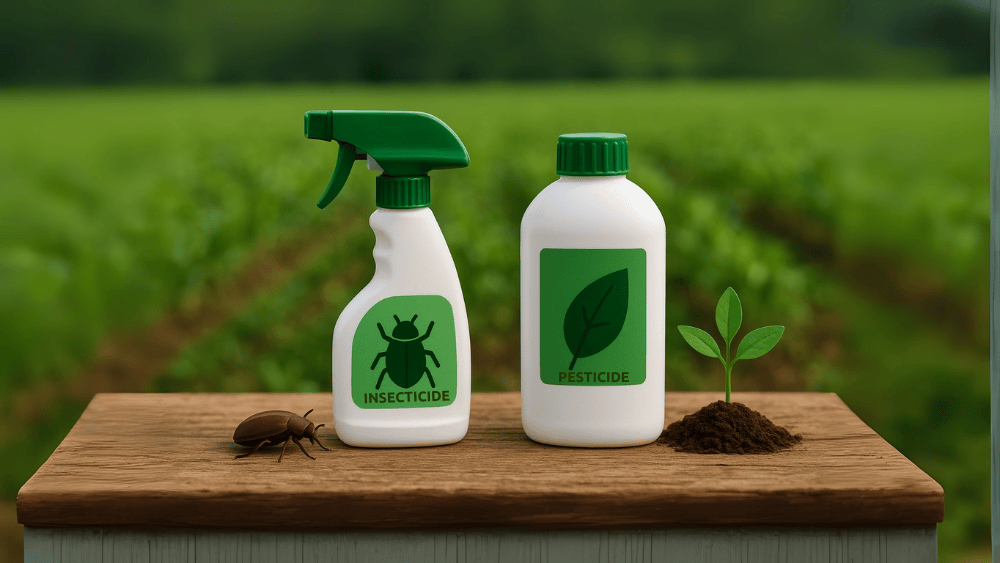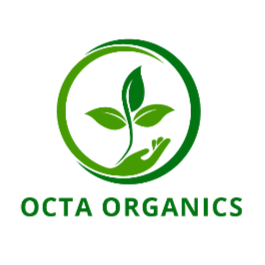
Difference Between Insecticide and Pesticide - A Farmer’s Complete Guide
Share
Farmers across the world face a common challenge: protecting their crops from unwanted invaders. From insects and mites to fungi and bacterial infections, pests have always been a major threat to plant growth, yield quality, and soil health.
This is where modern solutions like insecticides and pesticides come into play.
However, many growers often get confused about the difference between insecticide and pesticide, assuming they serve the same purpose.
In reality, while both are crucial for effective farming, they have distinct roles in shaping pest control strategies. Understanding these differences not only saves time and cost but also prevents misuse that could harm soil, plants, and the ecosystem. The right guidance can enable farmers to use them in the most effective ways.
So, we’ve prepared this ultimate farmers' guide that will break down the details about insecticides and pesticides, highlight their role in modern farming, and explain their types to help you understand their differences and make informed decisions.
Why Understanding the Difference Between Insecticides and Pesticides Matters
For many farmers, recognizing the difference between insecticide and pesticide can make or break a crop season. When farmers apply the wrong solution, it can lead to wasted investment, crop failure, or environmental harm. Knowing the scope of each solution ensures precise application and better long-term pest control outcomes.
Another reason this distinction is important is that different pests require different treatments. For example, using insecticides to control a bacterial disease in plant would be ineffective and potentially harmful. When farmers understand the exact nature of their problem, they can apply the right solution at the right time effectively.
What Are Insecticides?
Insecticides are chemical or organic agents specifically formulated to kill or repel insects that threaten crops. They are a category within the broader group of pesticides and are designed to manage insect infestations that can damage crops, reduce yields, and threaten food security.
The insecticide and pesticide difference lies in the scope; while pesticides may target multiple pests, insecticides focus exclusively on insects.
The Role of Insecticides in Farming
Insecticides play a vital role in safeguarding crops from destructive pests like aphids, beetles, caterpillars, and locusts. By reducing insect populations, farmers can prevent widespread leaf damage, stunted growth, and fruit loss. This makes insecticides a key element in modern pest control strategies.
Another significant benefit of insecticides is their ability to maintain crop quality and protect export value. Damaged crops often fail to meet market standards, leading to economic losses. Choosing the right formulation and dosage can improve farm profitability and minimize the risk of resistance buildup.
Types of Insecticides
Based on their nature and mode of action against insect pests, insecticides are classified mainly into the following four categories:
Systemic Insecticides
Systemic insecticides are absorbed by the plant and circulated through its tissues. When insects feed on the plant, they ingest the toxin and die. Systemic solutions are widely used in pest control strategies to ensure long-term protection for plants.
Contact Insecticides
Contact insecticides kill insects upon direct contact. They are commonly used for visible pests and offer quick results. These insecticides are ideal for controlling surface-feeding insects but may require repeated applications.
Ingested Insecticides
Ingested insecticides must be consumed by the insect to be effective. These are typically applied to the surface of crops or incorporated into baits. This method is often used in targeted mite treatment or when pests chew on plant leaves or stems.
Organic Insecticides
Organic insecticides are made from natural substances like neem oil, pyrethrin, or microbial agents. They are considered safer for the environment and human health. Organic options are particularly useful for farmers practicing sustainable agriculture.
What Are Pesticides?
Pesticides are a broader category of chemical or natural substances used to prevent, control, or destroy various pests, including insects, fungi, rodents, and bacteria.
The insecticide and pesticide difference is that insecticides are a subtype within this group. Essentially, all insecticides are pesticides, but not all pesticides are insecticides. Pesticides can be chemical or biological, and their correct use helps protect crops, improve food security, and support sustainable agricultural practices.
The Role of Pesticides in Farming
Pesticides help farmers manage pest infections that threaten plant health. By preventing infestations, pesticides reduce crop loss and increase overall yield. However, misuse or overreliance on pesticides without considering the difference between insecticide and pesticide can result in resistance and ecological damage.
Additionally, pesticides are crucial in preventing the spread of bacterial disease in plant. Certain pesticides, like bactericides, are specifically formulated to control bacterial infections that can devastate entire fields. Proper identification of the problem and the right pesticide selection can save crops and reduce financial loss.
Types of Pesticides
Since pesticides are a broader class of agricultural solutions, they come in various types based on the target pests. Some important types are:
Insecticides
Insecticides are a subset of pesticides used exclusively for controlling insect pests. These include both chemical and organic options. Farmers often integrate insecticides with other pest control strategies for improved resistance in plants.
Fungicides
Fungicides are designed to control fungal diseases such as mildew, rust, and blight. Fungicides work either by preventing spore germination or by killing the fungus directly. Timely application of fungicides is critical in maintaining healthy crop growth.
Rodenticides
Rodenticides target rodents like rats and mice that can damage crops both in the field and in storage. Rodenticides are highly important for farmers because rodents not only damage produce but also can spread a bacterial disease in plants.
Herbicides
Herbicides control unwanted plants or weeds that compete with crops for nutrients, water, and light. They help improve crop yield by reducing weed pressure. Choosing the right herbicide is crucial for effective weed management without harming plants.
How Octa Organics Supports Modern Farmers?
In an era of climate challenges and soil sensitivity, understanding the difference between insecticide and pesticide allows farmers to make informed decisions that protect both their crops and the environment. It helps them choose the right treatment at the right time, avoiding misuse and ensuring sustainable outcomes.
This is where Octa Organics plays a transformative role. With a range of eco-friendly pest control solutions, Octa Organics empowers farmers to protect their crops without compromising plant health. Our organic products are designed to work in harmony with nature, making them a trusted partner for modern farmers.

